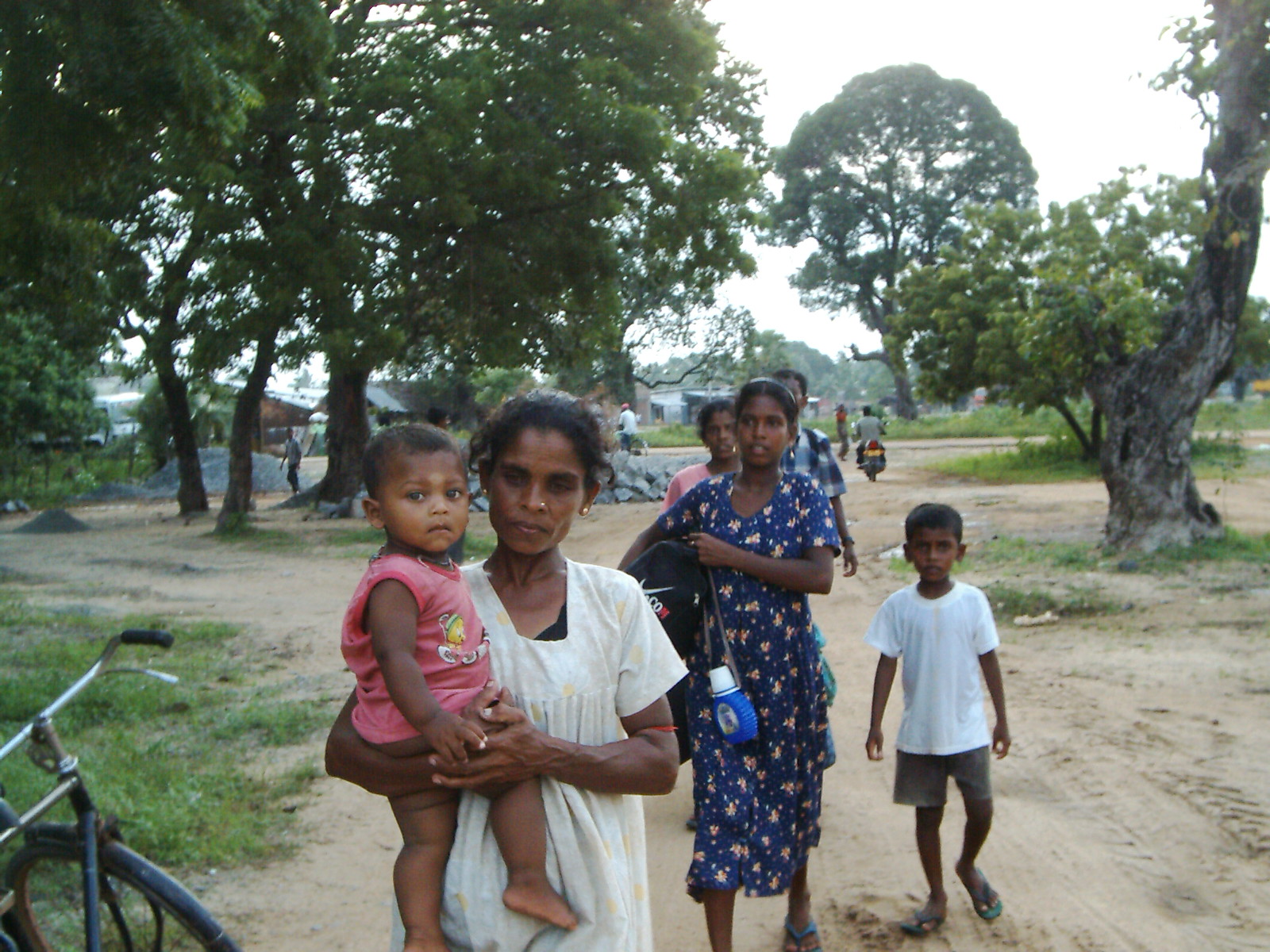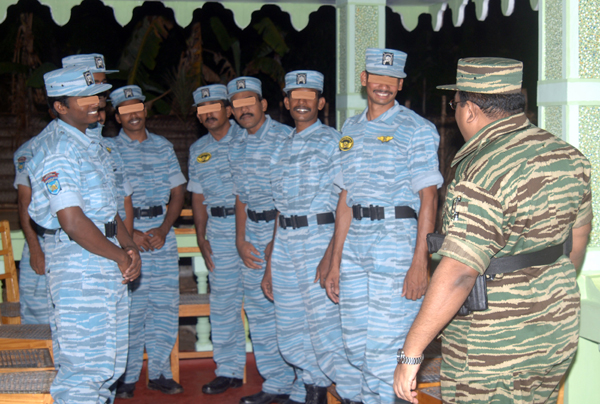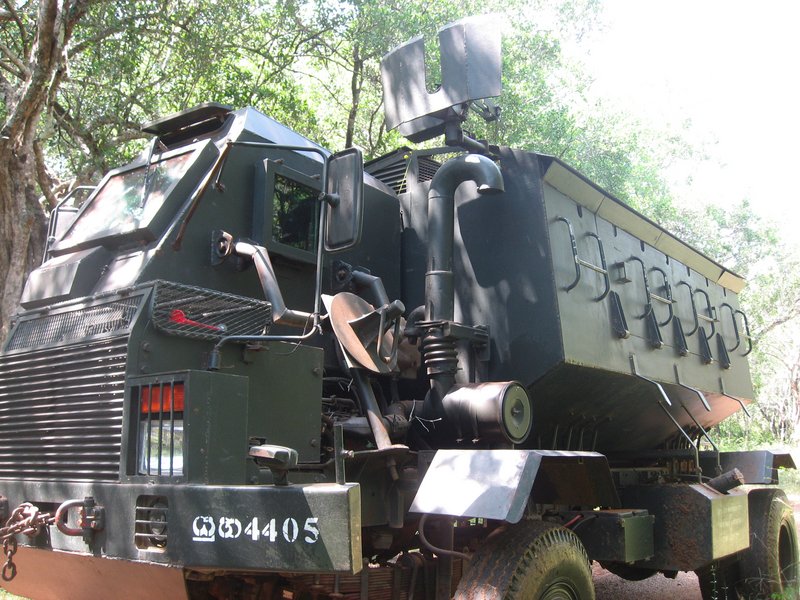Tamils traumatized by war - study
While residents in Colombo and areas outside the conflict zones often grumble about the cost of living, opportunist politicians and the lack of accountability by state institutions, their counterparts in war-torn Jaffna are a community virtually on the run.
Every family has a bag packed with all the essentials, ready to flee at a moment's notice, a new research study has revealed.
"When displaced to a refugee camp, they are systematic in getting themselves organized. They immediately find a corner, hang up screens with sarees, and start arranging their belongings for an indefinite stay," says Prof. Daya Somasundaram, a well-known Sri Lankan psychiatrist, in a new, path-breaking study on collective trauma.
The author, who fled Sri Lanka fearing for his and his family's safety and now resides in Adelaide in Australia, says the long-running civil war is causing more mental health problems and a social breakdown than the catastrophic 2004 tsunami.
"People have learned to survive under extraordinarily stressful conditions. A UNHCR official observed that in Jaffna people have become professional in dealing with complex emergencies from previous experiences," noted Somasundaram, Clinical Associate Professor in Psychiatry and Australia's first 'refugee scholar' at the University of Adelaide under the Scholar Rescue Fund.
Unfortunately, just like the words of that perennial American classic, “Where have all the flowers gone – When will they ever learn; when will they ever learn”, this study – like many others will go unnoticed and disregarded by policy-makers, and those who matter (from both ends of the spectrum) and end up – like many other serious discourses on the need for urgent peace – in an office cupboard gathering dust, an aging computer or a pen drive.
Prof. Somasundaram's study on "Collective trauma in northern Sri Lanka: a qualitative psychosocial-ecological Study" recently published in the International Journal of Mental Health Systems, however has come in for praise by other researchers, some of whom are his students or colleagues.
Ananda Galappatti, a Medical Anthropologist and an editor of Intervention, the International Journal of Mental Health, Psychosocial Work and Counselling in Areas of Armed Conflict, said Prof. Somasundaram's study is a valuable contribution to the discussion of mental health and social suffering in Sri Lanka, as it argues that chronic situations of conflict can result in 'collective trauma', serious psycho-social consequences that extend beyond individuals and impact on families and key social relations within affected communities.
"He argues for an understanding of suffering that is considerably broader than that allowed by conventional psychiatry, which tends to limit its perspective to psychological disorder or dysfunction in individuals," he said adding that Somasundaram built on insights gained through his work in post-Khmer Rouge Cambodia.
Jaffna has been the seat of Tamil militancy where the cry for self rule or the call from non-violent Tamil political parties for more powers to the region from the centre, emerged. The Tigers have said they are preparing for a major offensive by government troops in the north leading to uncertainty amongst the northern population.
Apart from death and destruction the psychosocial impact of the war has been severe in the conflict-affected areas in the north and east. The tsunami added to the woes of war-ridden societies.
The tsunami was a one-off catastrophic event that left a trail of destruction and loss, says Prof Somasundaram.
"But it did not continue to exert a prolonged effect (unlike the war). As a result the severity of the collective trauma was much less. In fact, having lived through a prolonged war situation has meant that Tamil communities have learned skills and strategies that make them better able to cope with disasters."
Several surveys of individual level trauma and its effects in the context of war have shown widespread trauma but this is the first study done of collective trauma.
The situation is getting worse amidst a daily diet of killings, abductions and robberies in Jaffna.
"We are seeing a lot of patients with psychological problems arising out of a situation of helplessness and uncertainty. No one knows what is going on and what would happen," said Dr. S. Sivayokan, Psychiatrist at the Jaffna Teaching Hospital.
Sivayokan, a student of Prof. Somasundaram who took over the author's position in this hospital, said a large number of robberies by unknown groups during the night have resulted in residents being fearful of nights and having sleep problems.
"A new (psychosocial) situation is developing. We see more patients unlike before who have hallucinations and imaginary situations related to the current context (uncertainty)," he said by telephone from Jaffna, where there has been a night curfew since last year.
He said this situation could be the added effects of suffering trauma over and over again during more than 20 years of conflict. In the high security zone in Jaffna, residents have been displaced for over 17 times while in the city itself, the average family would have been displaced at least twice.
Dr. Sivayokan said if there was continuous war, things would have been different.
"But in this case, there was a period (during the recent ceasefire) where there was peace, cultural exchanges and hope. Now there is uncertainty and worry about families, children," he added.
Prof. Somasundaram says the phenomena of collective trauma first became very obvious to him when working in the post war recovery and rehabilitation context in Cambodia.
During the Khmer Rouge regime, all social structures, institutions, family, educational and religious orders were razed to 'ground zero' deliberately (so as to rebuild a just society anew), he said.
"The family unit has been included (in this study) as it is paramount in most parts of the traditional world. When the family is affected, the members too are affected, while if the family is healthy the individual is either healthy or recovers within the family setting,” his report showed.
Prof. Somasundaram's study deals extensively with the war and tsunami impact on the family unit and traditional cultures which has triggered much of the psychosocial conditions now prevalent.
From the loss of one or both parents, separations and traumatization in one member, pathological family dynamics adversely affected individual family members, particularly the children, he says.
The cohesiveness and traditional relationships are no longer the same. Compared to before the war, children no longer respect or listen to their elders, including teachers.
The study reveals that Tamil parents quickly change their behaviour and tone (in contrast to what the child has seen at home or elsewhere) when dealing with the security forces.
They, perhaps unconsciously and with the best of intentions (to safeguard their children and to avoid unnecessary hassle), assume a submissive posture (removal of hat, bent head and body, low and almost pleading tone of voice, pleasing manner with a smile) when accosted by the security forces (e.g. at check points).
The children will observe this change without comprehending the full purpose (perhaps to avoid the child being detained) comparing it to their demeanour at home and in time loses faith in his or her parents, it said.
"A strong influence has been the contemptuous way elders and community leaders have been treated by the authorities and the submissive way they have responded. Elders are perceived as being powerless and incompetent in dealing with war and its consequences, a point often made by the young militants. Elders have also been traumatized by the war, affecting their functioning, relationships and parenting skills," it said.
Prof. Somasundaram said the high incidence of mental health problems, alcohol and drug abuse, physical and sexual violence, child abuse and family disharmony found among indigenous populations around the world can be the result of the break up of traditional culture, way of life and belief systems.






